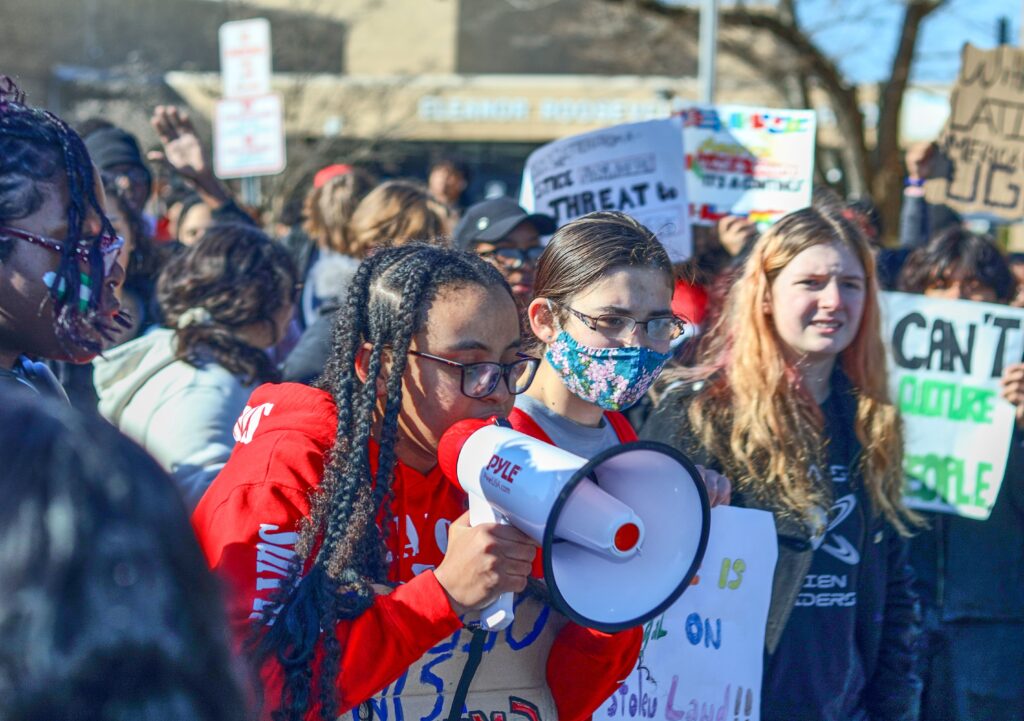President Trump’s budget request would drastically cut NASA – including a 50 percent cut to NASA Science that would remove nearly half (48 percent) of the approximately 1,700 civil servants at Goddard Space Flight Center (GSFC), warned Goddard Engineers, Scientists and Technicians Association (GESTA), the union representing GSFC federal workers. There appears to be broad
Congressional support for a budget that would avoid such cuts. However, last week a Senate bill that would bolster GSFC’s funding was waylaid by a battle over the future of another site with great significance to Greenbelt: the FBI Headquarters.
Congress’ Support
On July 10, the Senate Appropriations Committee amended the NASA Science budget to return it to existing levels, rejecting Trump Administration cuts which would reduce NASA’s Science budget from $7.3 billion to $3.9 billion. NASA’s Science budget is the primary funding source for GSFC. However, Republicans began withdrawing their support for the Commerce, Justice, Science (CJS) bill following Senator Chris Van Hollen’s (D-Md.) successful amendment to prevent funds being spent on an FBI headquarters in D.C.
On Monday, July 14, the House Appropriations Committee, also with bipartisan agreement, set their version at $6 billion for NASA Science. The bill was to be considered in subcommittee on July 15.
The current Senate version of the bill would cut $60 million from NASA Science and the House bill would cut $1.3 billion, which is still much better for GSFC and NASA as a whole than the $3.4 billion cut in the President’s budget request.
Future of the CJS Bill
The bipartisan support for funding NASA Science is good news for NASA and especially GSFC. However, the bill has a way to go. Both the Senate and House need to move their versions of the CJS bill out of committee and onto the floors of their respective chambers for debate, amendments and voting. If differing versions are passed, a committee with members from each chamber will have to reconcile them. Then the bill will go back for final passage and, if approved, on to the president for his signature (or veto). Congress can override a veto with a two-thirds vote.
The next fiscal year begins on October 1.
If Trump desires to make deep cuts to NASA, it’s unclear how secure NASA and GSFC employees could feel, even with Congressional funding, particularly after watching the dismantling of the U.S. Agency for International Development without Congressional input. “That’s a huge concern,” said one source at NASA Headquarters, particularly with Sean Duffy as the Acting Administrator of the agency. Duffy, already Trump’s Transportation Secretary, was appointed on July 9.
Impact on Greenbelt
“We are monitoring the federal budget process and the discussions around workforce reductions very closely. Our federal and state representatives are working tirelessly to prevent these proposed cuts,” said Greenbelt Mayor Emmett Jordan.
“The proposed federal cuts and workforce reductions carry far-reaching implications for Greenbelt,” Jordan told the News Review. “Local income tax receipts, commercial and retail revenues, housing demand and the office space market could all be affected,” he said.
According to data from the U.S. Census, in 2023 Greenbelt was home to 1,357 federal employees, over 14 percent of Greenbelt’s 9,599 workers. Greenbelt is home to a substantial number of Goddard contractors and federal civil servants, said Jordan, who has been told there may be twice as many contractors as civil servants at GSFC. City Councilmember Kristen Weaver is herself a contractor at GSFC and was unable to comment. “Several Goddard contracting firms maintain office space here in the city,” said Jordan. “However, contractor employment is project-based, causing these numbers to frequently change.”
One civil servant working at GSFC told the News Review most of their colleagues fear for their jobs and are applying for other positions. Last month then Acting Administrator Janet Petro announced a new Deferred Resignation Program, Voluntary Early Retirement and Voluntary Separation Incentive Program, as the Science Mission Directorate was asked to plan for a 50 percent reduction (see the June 12 issue).
GESTA, the labor union representing approximately 1,700 federal scientists, engineers and technicians employed at GSFC and two other centers, said Trump’s proposed funding cuts would be “catastrophic.” “If the proposed NASA budget cuts are realized, the loss of this highly specialized workforce, both within the federal government and with our partners in industry and academia, and the loss to our nation’s technical and scientific knowledge could take generations to rebuild,” said GESTA in a written statement.
“The Trump Administration’s 2026 federal budget request asks for an unprecedented reduction to the NASA budget, shrinking it to the lowest levels since 1961, prior to the start of the Apollo program,” said GESTA. “The requested cuts represent an existential threat to our nation’s leadership in Space and Earth Sciences, including about 50 percent cuts to those programs (50 percent to Earth Sciences, 30 percent to Planetary Science, 66 percent to Astrophysics and 46 percent to Heliophysics).”
Impact on the Next Generation
“The budget would also zero out NASA’s STEM Engagement programs, through which NASA educates, inspires and brings NASA to the next generation,” said GESTA. The next generation of NASA scientists and technicians are already being impacted as internship programs, such as Pathways, are unable to offer the “direct pipelines to full-time employment at NASA upon graduation” as intended. The current cohort is finding themselves unlikely to land the civil servant positions they were training for.
Weather, Food Impacts
In addition to the space exploration it is known for, NASA provides climate and weather data and modeling used to predict severe weather events and impacts on food production. It also contributes to the economy; in 2023, the most recent year with such data, “NASA provided a total economic output to our nation of $75.6 billion, representing a return on taxpayers’ investment, if measured only in economic terms, of 3x,” said GESTA.
“We urgently ask for Congress and the public’s support in rejecting these proposed cuts, retaining U.S. leadership in Space and Earth Sciences, and keeping the dreams of NASA alive for future generations,” said GESTA in a written statement.
Meanwhile, Greenbelt’s City Council and City Manager “have taken a very conservative approach to revenue projections and have allocated additional resources to support residents, particularly with food and housing assistance,” said Jordan on Tuesday. “We are working with regional agencies to provide workforce development resources for displaced workers (Employ Prince George’s) and local organizations to assist affected families. The city will continue to advocate for our residents.”



